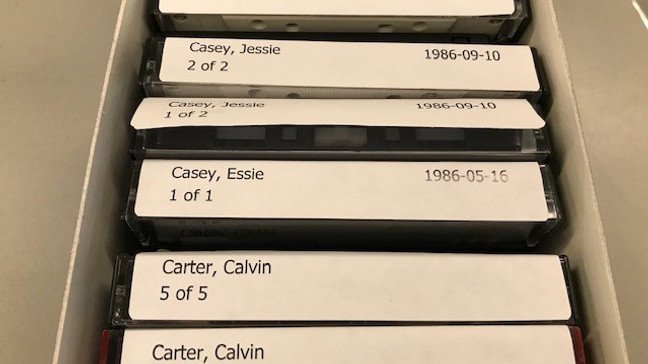CULLOWHEE, North Carolina (WLOS) — Recordings of local African-Americans made in the 1980s have been upgraded at Western Carolina University. University leaders want the collection preserved so they can better teach race relations.
The recordings at Hunter Library at WCU have now been transferred from analog to digital to preserve them, keeping the memories of African-Americans mainly in the early part of the 20th century. Recordings include information about everything from serving in word wars to sharecropping to the importance of church and family.
“They talked about racial things that happened to them, both positive and negative,” said Shamella Cromartie, associate dean, Library Services at Hunter Library.
Cromartie said several people were recorded between 1986 -89 by the Western North Carolina Tomorrow Black Oral History Project. And their voices are now secured away from old cassettes to digital files.
“They talked about integrating the schools, being in segregated schools. They talked about the Civil War and many things,” she said.
Cromartie said the recordings reveal the difficult and good things in their lives.
“Their own churches that they had, their family lives that they had,” she said.
Pictures of the period are in the special collections area, as well, reflecting the importance of community.
The voices of the past contain first-hand knowledge of segregation and Jim Crow laws.
“They do talk about those things and their experiences that they had as young school children trying to figure out what was going on, how their parents dealt with it as well,” Cromartie said.
Cromartie said the recordings show the resilience of rural, Southern, African-Americans succeeding despite the odds.
“Some people became teachers. Some people left and went off to college, and they went on to do other things. And professionals yes, business professionals,” she said.
Cromartie said it’s a collection that can speak to and inform the present.
“It’s very interesting to hear the stories and then compare them to the things that are going on now,” she said. “It shows where we were. It shows how far we’ve come and how far we still have to go as far as racial relations in the country.”
You can go to Hunter Library’s website to easily find access to these recordings.

